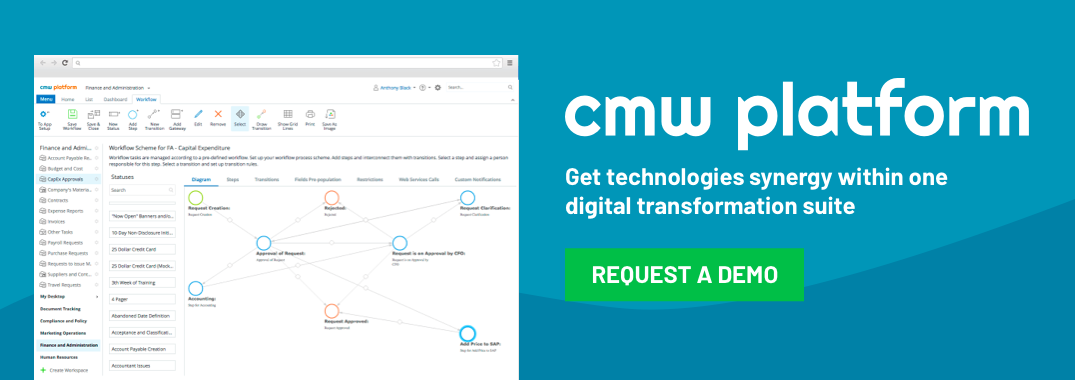What is Approval Management? Benefits, Challenges, and the Future of Automated Approval Systems in 2025
April 3, 2025
In the modern age of speed, it is essential to have an approval management system. Such a system, often referred to simply as an approval system or sometimes pluralized as approval systems when discussing multiple implementations, not only boosts the efficiency of the business operations by making them flexible and quick but also helps to be effective and agile. However, the question arises: what is approval management precisely, and why is it such a big deal for modern enterprises? Understanding the core concept – sometimes phrased apa itu approval in international business contexts – is the first step.
This guide explores the management approval meaning, delves into the benefits and potential risks of approval workflows, and offers insights into how modern approval management software can revolutionize your business processes, touching upon the benefits and limitations of a workflow management system in general.

Table of Contents
What is Approval Management?
In simple terms, the approval management process involves the systematic manner of seeking and granting approvals for various tasks, such as documents, orders, purchase orders, or even strategic decision making in relation to an organization. Defining managerial approval meaning within this context refers to the specific authorization given by someone in a leadership position. The core process ensuring requests meet necessary criteria before proceeding is fundamental. In a bid to protect the integrity of the organization, the process ensures that only the designated personnel, including the relevant approval manager or specified decision makers, who have the authority to approve such actions do so before they are executed. This systematic approach is the heart of approval management. In other words, for example, in project management, approval processes might be used to determine the point in time when authorization, including management’s approval or approval from management, at different levels of the organization has been obtained for the allocation of resources, ultimately leading to approved documents or actions.

Modern approval management systems have largely replaced outdated manual methods. These systems feature automated workflow capabilities, keeping things efficient and traceable while reducing human errors. They form the backbone of an efficient approval process.
Why is Approval Management Crucial?
Every decision—big or small—carries the potential to impact an organization significantly. Without proper approval process management, businesses risk delays, inefficiencies, compliance issues, and even reputational harm. A structured approval workflow eliminates ambiguities and ensures clear communication about what is approved by management and what isn’t. Whether you need manager approval, managers approval from multiple individuals, or final approval from executives, a clear system is key. Understanding the nuances, like whether to use “management approval or management’s approval” (both are generally acceptable, often depending on sentence structure), becomes less critical when the process itself is clear.
Benefits of an Effective Approval Management System
A proper approval management system brings numerous advantages to an organization. Here are the key benefits:
Automated Approval Workflows & Automation – Modern systems allow users to set up automated approval processes (approval management automation), ensuring requests move seamlessly through predefined stages without manual intervention. Whether you’re processing invoices, managing HR applications, or handling marketing approval management, automation significantly saves time and reduces bottlenecks in business operations. This automated workflow is a cornerstone benefit.
Mobile Accessibility – Today’s workforce demands mobility. Cutting-edge solutions provide mobile approval system functionality, letting users approve or reject or track requests anytime, anywhere. This flexibility is invaluable for team members spread across different locations or time zones, ensuring the decision making process doesn’t stall.
Transparent Processes & Audit Trails – With an approval management engine, every stage of the approval is logged and visible. This transparency, supported by comprehensive audit trails, improves accountability and ensuring compliance. You can pinpoint exactly who provided their managerial approval, when, and why. These audit trails are crucial for regulatory requirements and internal reviews.
Enhanced Workflow Tracking & Timeliness – Efficient tracking helps team members monitor tasks’ statuses, identify bottlenecks, and follow up on any delays. Modern tools include features to identify pending actions and understand timely approval meaning – which signifies getting the necessary sign-offs within expected or required timeframes to avoid disruption. This reduces response times for required approvals.
Ad-Hoc Approvals – Need a decision-maker who isn’t available? Systems offering ad-hoc approvals allow you to appoint alternates or replacements, so work doesn’t come to a standstill when someone requires management approved status but the primary approver is on leave.
Streamlined Decision-Making – By storing all relevant information in one place, approval systems facilitate faster and more informed decisions backed by complete data. Managing requirements, like awaiting the manager’s approval or management approval, becomes easier and more efficient, improving the overall decision making process.
Hidden Dangers and Challenges of Ineffective Approval Management
Despite its importance, an outdated or ineffective approval system can become a liability. Common document approval workflow challenges and other risks include:
Time Wastage – Legacy systems often require approvals to be passed manually through multiple personnel, leading to delays. For instance, circulating paper documents or relying on email threads results in ineffective time spending and hinders the goal of running operations efficiently.
Lack of Flexibility – Older systems, especially those without mobile approval access, limit the ability of decision-makers to respond promptly. Teams operating globally cannot afford such rigidity in the management approval process. Getting approval from management becomes a protracted affair.
Risk of Information Loss & Errors – Critical details might go missing when using outdated or poorly managed approval methods. Missing pieces of the puzzle can lead to poorly informed decisions, increasing the likelihood of human errors and costing time, money, and sometimes reputation. These are significant limitations compared to the benefits… of a workflow management system that is modern and robust. By shifting to modern approval workflow software or broader business process automation software, companies can greatly reduce those risks and increase efficiency to a high level.
How to Select the Right Approval Management Solution
When exploring options, look for these features to ensure you’re investing in the right approval management software system for your company:
- Intuitive Interface: A user-friendly platform ensures smooth onboarding and efficiency for all team members.
- Customizable Workflows: Advanced approval systems allow you to design workflows customized for your organization’s needs, handling complex scenarios involving multiple stages and required approvals. For instance, you might incorporate more complex setups with dual managerial approval for sensitive decisions.
- Cloud-Based Accessibility: With cloud capabilities, employees can handle approvals from any device—even while working remotely.
- Integrations: The ability to integrate with tools like CRMs, ERPs, or other platforms ensures your workflows remain centralized and data flows smoothly across business operations.
The Future of Approval Management (2025 and Beyond)
Fast-forward to 2025, and approval management is evolving into something extraordinary, driven by approval management automation. Here’s what you can expect on the horizon:
- AI-Driven Approvals: Artificial intelligence will streamline complex decision-making. AI can identify potential delays, offer alternative solutions, detect unusual activity in real time, and even provide insights based on likelihood of approval analytics.
- Seamless Integrations: Approval systems of the future will connect effortlessly to tools like CRMs, ERPs, and project management software, creating unified platforms for all workflows.
- Hyperautomation: Combining AI, machine learning, and robotic process automation (RPA), hyperautomation allows businesses to automate even the most intricate approval workflows, pushing approval management automation to new heights.
- Advanced Analytics: Future approval systems are set to offer granular insights, including likelihood of approval analytics to predict bottlenecks or success rates, spotting underlying trends and inefficiencies to improve processes continuously.
- Enhanced Security: Expect cutting-edge safeguards such as encryption, multi-factor authentication, and potentially blockchain technology to protect sensitive data throughout the management approval process and secure approved documents.
Illustrative Case Study
Consider this example from a mid-sized retail company. When working with manual approval workflows, they faced significant document approval workflow challenges:
- A delay in purchase orders approvals of up to 2 weeks, causing stock shortages.
- Unclear accountability regarding which approval manager or department head was responsible for specific decisions needing management approved status.
- Missing records that led to miscommunication, disputes, and difficulty locating approved documents. The process to get final approval was cumbersome.
After implementing a cloud-based approval management automation system (approval workflow software), they reduced processing times by 60%, improved transparency across departments (with clear audit trails), and reported higher staff satisfaction levels. Getting the necessary managers approval became much faster.
Recommended Solution: CMW Tracker
Approval management is no longer just a back-office function—it’s the backbone of any organization aiming to run operations efficiently. By automating and streamlining operational workflows, including the entire decision making process related to authorizations, you can unlock better results, save time, achieve reduced errors, and improve decision-making.
Looking to optimize your approval workflows? Try CMW Tracker today with our risk-free trial and experience how a robust approval management system can transform your business operations.
Take the first step to a smarter and more efficient future. Start now!
FAQ
- What is the purpose of approval management? It standardizes and controls how requests gain required approvals. The process ensuring verification for accuracy and compliance safeguards against mistakes, human errors, and unauthorised actions before tasks impacting business operations are executed. It clarifies the management approval meaning within specific contexts.
- Which industries benefit most from automation? Industries like finance (e.g., purchase orders), marketing approval management, HR, IT, and legal thrive with enhanced workflow visibility, ensuring compliance, and faster turnaround times provided by approval management automation.
- How does dual approval benefit businesses? It ensures a double-layer of verification for critical requests, often involving multiple decision makers or requiring both standard manager approval and a higher-level management’s approval, significantly reducing errors and risks before final approval is granted.
- What does ‘timely approval meaning’ refer to in practice? Timely approval meaning refers to the completion of an approval step within the designated or expected timeframe, preventing delays in the overall workflow and ensuring operations efficiently continue without unnecessary interruption. Delays impact the entire decision making process.
Make approval management effortless—we’re here to guide you every step of the way.


